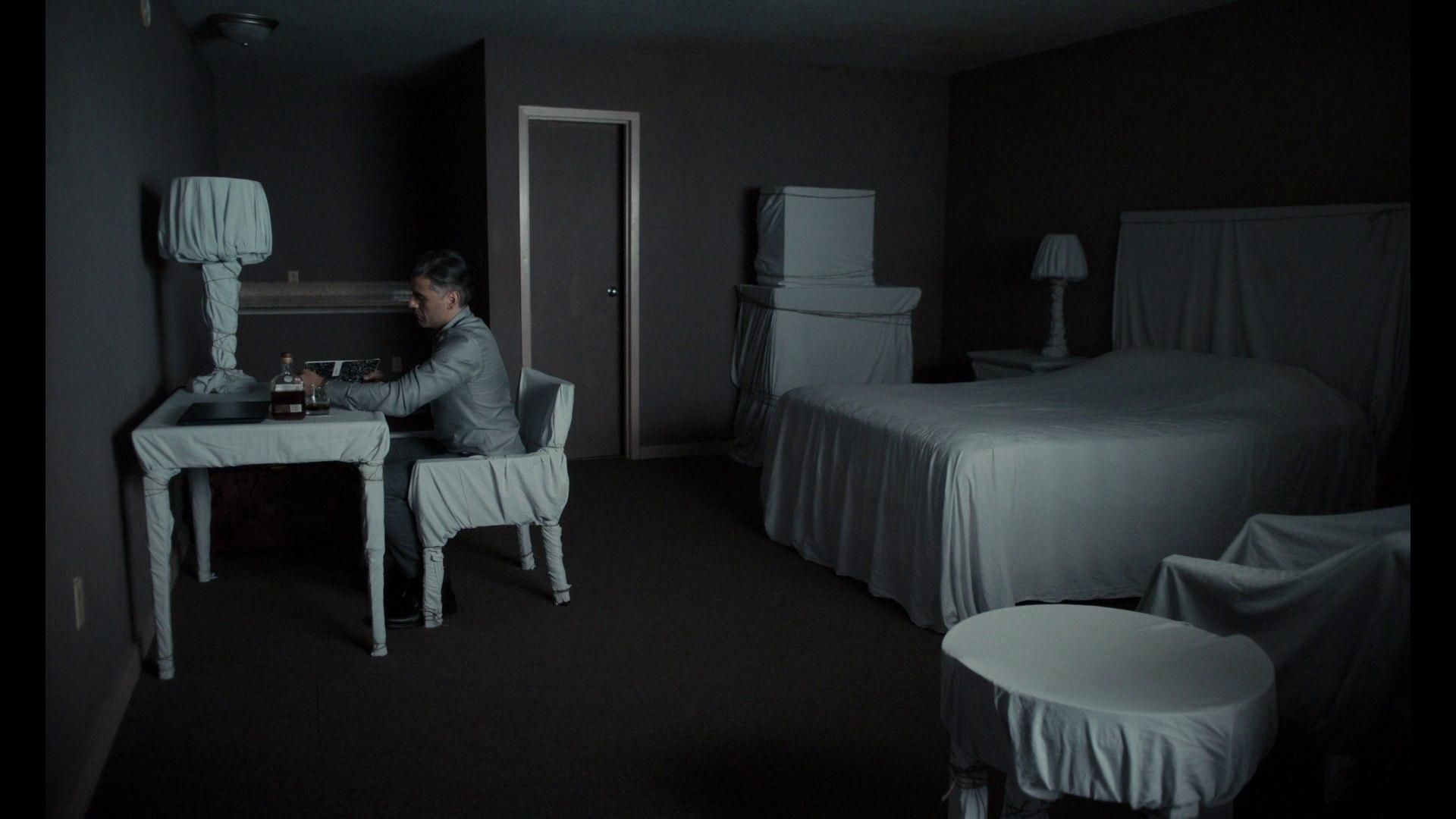Some Things Are Beyond Forgiveness

Originally published on Letterboxd on 12/05/23
“The feeling of being forgiven by another and forgiving oneself are so much alike, there's no point in trying to keep them distinct”.
In the text of JG Ballard’s science fiction, there is often a seemingly universal acknowledgment that physical trauma undergone by the body is inextricable from the environment that surrounds and perpetuates said violence- not merely the sociocultural environment, but the very architecture encasing the fragile bodies that manoeuvere through them. In his reckoning with late-70s neoliberalism and the then-incumbency of the austerity era, High-Rise, this concern is literalised in the form of a geometrical labyrinth- “a model of all that technology had done to make possible the expression of a truly free psychopathology”.
Here, there exists a similar expression of distinct psychopathologies through the architecture of spaces of commerce- chiefly, late-capitalist ennui. A perpetual flow of monetary exchange premised on pure chance (and thereby presuming a degree of human unpredictability) exists within the same space as the sale of technologies that enable mass incarceration and genocide. William Tell’s body is a testament to the inability to separate these spheres- for all his efforts to delineate a border between his newfound identity as a practitioner of commerce rather than of torture, it is his very expertise in the latter that makes him skilled at the former. As with Ballard, it is the breaking of the body as a prerequisite for mass societal change that acts as the undercurrent for any real change- both Tell and the young man he takes under his wing have a chance to escape from the fates they’ve moulded for themselves, but it is the apparent necessity of violence as the only way they can truly, fundamentally alter their very being that drives them towards death and imprisonment.
There’s also the extension of a key thematic concern of Schrader’s that doesn’t seem to be brought up as frequently as isolation and Catholic guilt: terrorism. Here, though; the concern has very little to do with any fears of what prompts the War on Terror (since Schrader refuses to give any leeway to the notion that contemporary American imperialism has even a shred of legitimacy or justification) and far more to do with the legitimacy (or lack thereof) of terrorism as a means of salvation. Engaging with the instruments of modernity, Schrader wrestles with the evolution of the political assassination- unlike in Taxi Driver, public exposure (and therefore the transformation of oneself into a political symbol) is no longer necessary to enact what the state deems to be terrorism. Fundamentally, this is a film that, quite simply, understands and proclaims that those responsible for legacies of rape, mass theft and torture in American imperialism have names and addresses, many of which are publicly available.
In a press conference for another one of Schrader’s late-period works that the public at large was either unable or unwilling to embrace as the masterwork that it is, The Canyons, Bret Easton Ellis described the film he worked on with Schrader as “a cold, dead film about cold, dead people”. Whilst this is nowhere near as calculatedly icy and obsessed with artifice as that film is, it is still one where there can be no warmth without the all-consuming fire of guilt, no salvation without crucifixion. My inextricable personal investment in Schrader’s films means that my favourites among his oeuvre often change, but I think this may be my favourite Schrader because its personal philosophy and advancement of the director’s career-long thesis is the one that is closest to my own: that some things are beyond forgiveness, that redemption is probably a lost cause and that the only way to live with this knowledge is through perpetual punishment via self-exile of the body and soul
